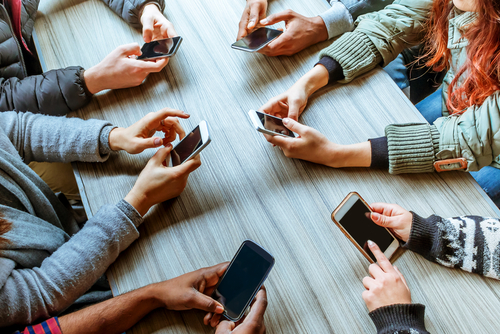We are tied to the smartphone and the tablet each day. Without them we would be lost, unable to share posts with friends, give likes to photos and upload our latest lunch. Doctors are now dealing with more and more conditions linked to smartphone overuse. Our kids prefer to swipe and scroll instead of going outside to play. All this has one name: digital addiction.
What is digital addiction and how real it is
Digital addiction is one type of addiction, just like alcohol or drug addiction. The only thing which makes it unexpected is the object of the addiction: technology. Our smartphones and tablets can and do become addictions, which is a fact well-known in the medical field. Digital addiction is the urge to use digital devices despite the negative consequences it may have. It is also referred to as technology addiction or internet addiction.
The World Health Organization declared gaming disorder or video game addiction is now one of the most common mental health disorder among teens and young adults. At the same time Google and Omnicom CEOs express their concerns on the teens’ addiction to likes.
Today it’s impossible to live without technology, as we have to work on a computer and most sources of information are now online. We pay our bills online, we check the status of our bank account online, we find jobs online. This makes the line between what is supposed to be normal technology usage and addiction a very thin one.
Knowing the signs of digital addiction can help you understand if you need to undergo a digital detox or you just need to take a deep breath and a walk in the park before returning to the high tech life.
You are anxious at the thought of not having your smartphone
One of the first signs of digital addiction is the anxiety you feel when you have to spend a day without your tablet or phone. If you notice you panic when you forget your smartphone at home you might need to have a detox. Some people even experience panic attacks when they have to leave the house without their smartphone. The symptoms of a panic attack are chest pain, difficulty to breath, nausea, uncontrolled shaking and sweating.
Another sign of technology addiction is feeling anxious when you can’t go online. Most people would easily find something else to do after a couple of hours, but digital addicts can’t cope with the lack of internet access, which gives them physical symptoms of anxiety.
You procrastinate on everything to get more time online
Missing your deadlines and postponing work to be able to spend more time scrolling it’s a sign of digital addiction. From time to time we all put off washing the dishes to play a video game, but if you are doing this daily, you are addicted.
Your personal relationships suffer
If you watch teens going out you will see they spend almost the entire time browsing their smartphones instead of actually chatting to each other. This hurts both their relationships and their social skills. Young adults who are addicted to technology often spend their dates on their phone, as well as their free time. Having a partner who is more interested in their smartphone than you it’s painful and leads to a breakup. This is a sign your friends and family is going to spot, as you are going to be busy with the smartphone, so if your loved ones often ask for more attention from you, it’s a red flag.
You also become a workaholic
Work addiction and technology addiction go hand in hand nowadays because we use the email to communicate and the computer to do our work tasks. Many technology addicts use their job as an excuse to use their devices more. This leads to using your free time hooked on working. 80% of Americans confess they’ve been answering work emails during their free time. Simply because you are already using the phone to browse social media, the temptation to get some work done is high. In time, this depletes you from the free time you should be spending with your friends and family, relaxing.
You are in physical pain
Staring at a blue screen hours on end, daily is going to come with a long list of health issues. Headaches, neck and back pain, itchy eyes and poor posture are some of these problems. The more severe ones include deformations in the spine and fingers. Doctors have been observing cognitive impairment in people who suffer from technology addiction, an illness which is known as digital dementia.
No matter how you call it – digital addiction, internet addiction or technology addiction – being constantly hooked on your electronic devices is a severe problem with equally severe consequences. There are plenty of ways to limit the amount of time you spend in front of the screens, but just like any other drug addiction therapy, digital addiction requires treatment so don’t be afraid to ask a professional for help.

